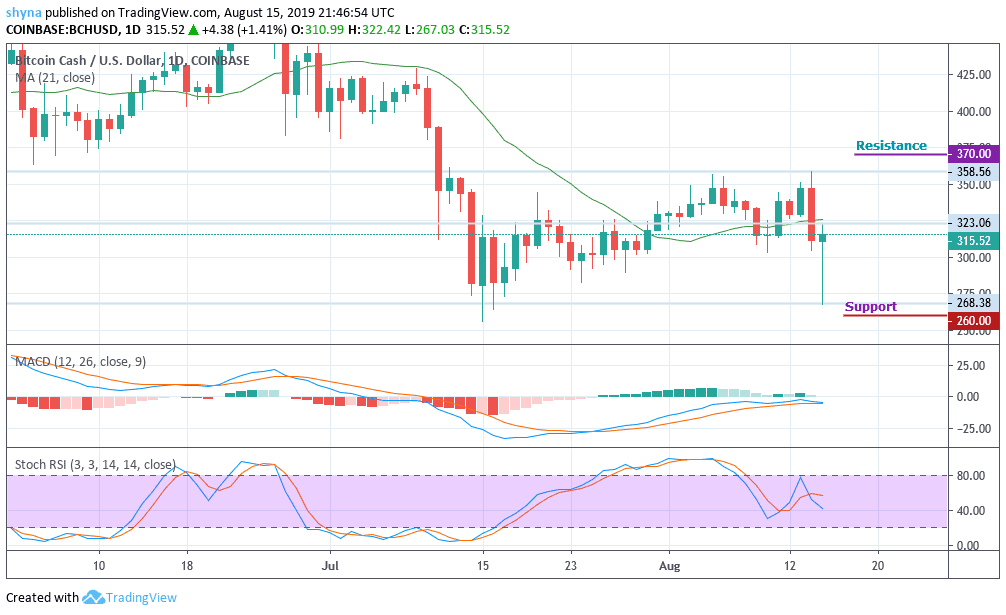Join Our Telegram channel to stay up to date on breaking news coverage
Gary McFarlane, cryptocurrency expert at UK investment platform Interactive Investor, provides his thoughts on Brexit and bitcoin while canvassing the views of other experts.

What will be the likely pros and cons of the UK leaving the European Union for crypto and the bitcoin price?
The geopolitical turmoil stalking the globe and the economic uncertainty that is its backdrop have been key factors driving the bitcoin price higher.
The time is perhaps fast approaching to add Brexit to the list of bitcoin price boosters.
I reached out to some crypto movers and shakers to see what they thought the likely fallout of Brexit might be for bitcoin.
But before I caught up with our commentators, I mulled over some thoughts.
Brexit will see bitcoin shine brighter for UK retail investors
With no deal the likeliest outcome, sterling/dollar (or cable as it’s known to traders) will remain under pressure with the key concern being a drift towards parity with the US dollar. A depreciating currency can have an outsized impact on sentiment among retail investors (and consumers).
Just when the global economy is entering a period of choppy waters, the pound is no longer one among a number of currencies other than the dollar than can offer a safe haven from the storm.
Far from attracting safety flows, the pound is struggling to keep its head above water, although popped today to $1.21 on hopes a no deal is averted.
If bitcoin continues to show uncorrelated returns to equities and maintains it newly acquired tentative status as a safe haven play and hedged against global economic and political uncertainties, and if regulation can eliminate automated trading robots such as Immediate Edge app, which is considered a risk factor for the industry, then Brexit is coming along at a time that could see it appear to shine still brighter in the eyes of UK investors.
Just as gold has risen, so too has bitcoin, despite the recent pullback following the latest twist in the US-China trade dispute and the tax clampdown on crypto traders and investors.
We should expect Brexit to heighten the “digital gold” appeal of bitcoin to a certain demographic of younger investor with more time ahead to manage risk.
If Brexit goes through on 31 October without a deal then the shrinking value of the currency could see a spike in popularity of bitcoin in the UK, which is still a relatively small market for crypto.
Regulatory innovation opportunity
More generally, the financial regulators and supervisors have positioned the UK as a relatively crypto-friendly environment.
The Bank of England has been open to distributed ledger technology, despite the push back against Facebook Libra and the Financial Conduct Authority runs a regulatory sandbox for blockchain startups to test and build compliant products.
Add to that the warm words from ministers in the various cabinets of recent times, and the prospect of creating a light-touch regulatory scene for crypto to help the UK maintain its position as Europe’s leader for inward investment, will be tempting for the government.
Crypto to further entrench fintech success
The close proximity of capital and highly skilled tech labour in London has helped to cement its place as a fintech hub frontrunner.
We should expect to see the government introduce friendly visas for tech workers and legislation to encourage quality blockchain startups to set up shop in the UK.
But that’s enough from me. What do others from the UK industry and further afield think will happen?
Obi Nwosu, founder and chief executive of Coinfloor, the UK’s oldest cryptocurrency exchange

Obviously as a company disruption in terms of the wider economy is not something that we look for. I would prefer personally to see some sort of sensible arrangement between the EU and the UK as part of Brexit.
Nevertheless, we are in one of the few industries that has the potential to continue to be pretty robust during this transition.
Bitcoin, particularly over the long run, has the potential to become a new type of currency or payment system, but right now its most visible use case is digital gold.
Both bitcoin and gold have been robust in the face of geopolitical instability. We’ve seen interest in bitcoin as a stock market hedge and uncorrelated asset class.
On where we are with Brexit right now, we’re hiring – but we are trying to be as conservative as possible because we are entering a period of instability… it could be that Brexit leads to an acceleration for the industry.
Over the next 24 months we expect to see a significant increase in bitcoin demand.
When people are looking for places to invest and they see how Brexit could have a negative effect… people say what other places can I invest in?
People are uncomfortable with other large geographies for other reasons. Its why gold is up. Bitcoin is now basically seen in the same breath as the precious metal. Significantly, interest among institutions and high net worth individuals is high and they are looking to buy because of “digital gold” reasoning.
Weakening of other currencies will be an additional driver [for the bitcoin price], but just one of many factors.
In general we saw significant levels of interest when the US-China trade war started – you could see a notable increase there. But bear in mind that because of the global audience of bitcoin, the extent of the impact of the UK’s difficulties will not be the same as for US-China.
It [more regulation] is great for us. Since launch six years ago we built the business around being compliant. Obviously we don’t want inappropriate regulation, but now that stricter regulation is coming, that is going to lead to adjustment in the market.
Brexit could stimulate significant regulatory innovation. Boris Johnson’s free zones if similar to what you see in China etc could be exciting… If there’s the political will, the UK could do some interesting things.
The UK could leverage its position on global markets – Hong Kong, Singapore and Shenzhen combined. Only certain intimations of this are in Johnson’s recent speeches, but this is a potential opportunity.
Jason Scales, managing director of Hubb on the Isle of Man

“It is my opinion that as we head towards Brexit there is a likelihood that the UK is headed towards an economic recession by the end of the first half of 2020. There is an ever-increasing number of individuals and funds in the UK, Gibraltar and the Crown Dependencies looking at alternative areas to place investment.
“I expect to see increasing amounts of deposits of sterling into cryptocurrencies, not just Bitcoin, as the leading investment banks continue to provide more breathing space to their crypto trading desks to facilitate this. I do not consider this as a knee-jerk reaction to the value of the pound. This period of uncertainty coincidentally occurs as we approach an interesting new phase in bitcoins life cycle next year with the introduction of halving. It would be ignorant of anyone to think that those heavily invested in bitcoin, including institutionally, are not mining it too. They are! This has not yet seen implications on Bitcoin’s value.
“For the speculative investor, this may prove more appealing than the UK stock markets during uncertainty. Either way, the situation in the UK is playing in to the hands of the Bitcoin market, quite unintentionally.”
Sukhi Jutla, the world’s first author on blockchain and the co-founder of MarketOrders, an online B2B marketplace for the gold jewellery industry

A digital currency still in its infancy, Bitcoin has defied critics to become a well-respected store of value, not dissimilar from commodities such as gold. Historically, in times of uncertainty, many people will rush to the safety of commodities. This is why it is hardly surprising, as Brexit looms, that the price of gold has been inching up daily. Gold is often thought of as a safe haven, and a way to minimise risk. It’s real, liquid, and a store of value. Bitcoin is on a similar trajectory; although there is still a lot of contention between governments about whether Bitcoin can be viewed as a real currency, they have relented and agreed that it can be seen as a store of value.
So, with the value of the pound likely to plummet when we leave the EU, I anticipate the price of Bitcoin will only surge. It is seen as a store of value, which can be traded quickly. Though there is an increasing number of businesses that are now accepting Bitcoin as payment (think Brewdog Beer or digital books from Publica), it is still seen as a stable and reliable medium of exchange.
In the coming months, we will continue to see erratic behaviour across the money markets, most notably the value of the pound. With this in mind, I predict there will be a flurry of activity in the gold and Bitcoin markets, driving both of these assets market prices upwards, and providing a flight to safety in the event of Brexit.
Manish Kataria, co-founder of smart crypto trading platform Quadency

My take that’s aligned with many experts: there’s a general sentiment out there that a no-deal brexit could lead to both a devalued pound, while driving up Bitcoin as the ‘safe haven’ asset it’s beginning to be viewed as around the world in countries with political turmoil. While a deal brexit seems unlikely at this point, we’d definitely see less volatility on each asset in that event.
My slightly contrarian take: One important nuance I see in a no-deal brexit is the extent of the potential impact on BTC’s price. Considering retail demand in the UK, the real question to ask is how will funds holding GBP reserves react to a devalued pound?
Unless global market sentiment layered over Brexit led to their (or even large global fiat reserve holders) purchasing large swaths of Bitcoin (vs. staying in gov fiat or even stablecoin or other asset), I don’t anticipate a major impact specifically on BTC’s price in the near term.
Henry Stanley, chief executive ICOAxiom
There are a couple factors in play regarding Brexit, if they exit with or without a trade deal, without a trade deal is worse for Britain and their pound and better for bitcoin.
You are already seeing the British Pound decrease in value on the fears of an exit with no deal.While a deal limits the downside of the British Pound, an exit from the EU, will negatively impact their economy.
Ultimately, I think this is good for Bitcoin, one as a means to store value against a falling Pound. The other as a means to conduct transactions between Britain and Europe.
Dr. Michael Yuan, a co-founder of The CyberMiles Foundation and chief executive of Second State, a global provider of “smart contract”-based business solutions

The weaker national governments (like the U.K.) are, the better Bitcoin looks in contrast. For instance, the price of Bitcoin in recent days definitely is correlated with the U.S.-China trade war.
The passing of—and fallout from—Brexit in 2016 very well may have influenced the extraordinary run-up of Bitcoin (and other cryptocurrencies) in the year that followed.
What we’re witnessing now is a burgeoning “arms race” to become the electronic cash of tomorrow.
Consider that the original Bitcoin white paper was entitled “a peer-to-peer electronic cash system.” 10 years later, it is primarily a store of value — i.e. digital gold. Bitcoin is out of reach of most of the world’s poor and has not succeeded as a payment system.
The key measure of success will be whether crypto can help the poor and unbanked integrate into the world’s financial system.
Read more:
- New England Patriots star, Mac Jones, gifts Bitcoin to teammates
- Study Shows a Shockingly Low Percentage of Brits Want Bitcoin

Gary McFarlane is the cryptocurrency analyst at interactive investor and writes here in a personal capacity. None of his commentary should be considered investment advice.
Join Our Telegram channel to stay up to date on breaking news coverage


